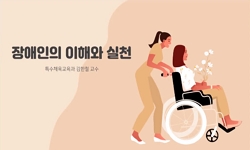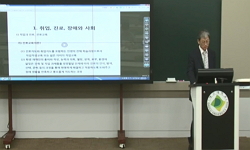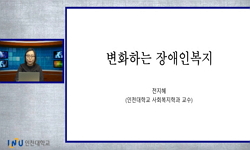People with Disabilities (PWDs), constituting 15% of the global population, often find limited representation in Vocational Education and Training (VET). This research aims to engage scholarly dialogue on national policies to enhance VET approaches fo...
http://chineseinput.net/에서 pinyin(병음)방식으로 중국어를 변환할 수 있습니다.
변환된 중국어를 복사하여 사용하시면 됩니다.
- 中文 을 입력하시려면 zhongwen을 입력하시고 space를누르시면됩니다.
- 北京 을 입력하시려면 beijing을 입력하시고 space를 누르시면 됩니다.

A Comparative Analysis of Entrepreneurship Education in Vocational Education and Training for People with Disabilities in Republic of Korea and Finland
한글로보기https://www.riss.kr/link?id=A109433843
-
저자
김영준 (서울과학종합대학원대학교/스위스프랭클린대학교 경영대학원) ; 최진희 (서울과학종합대학원대학교, 경영대학원) ; ArashGolnam (스위스프랭클린대학교, 경영대학원)
- 발행기관
- 학술지명
- 권호사항
-
발행연도
2024
-
작성언어
English
- 주제어
-
등재정보
KCI등재
-
자료형태
학술저널
-
수록면
29-56(28쪽)
- DOI식별코드
- 제공처
-
0
상세조회 -
0
다운로드
부가정보
다국어 초록 (Multilingual Abstract)
People with Disabilities (PWDs), constituting 15% of the global population, often find limited representation in Vocational Education and Training (VET). This research aims to engage scholarly dialogue on national policies to enhance VET approaches for PWDs using a comparative education perspective. Focusing on the Republic of Korea and Finland, we analyzed variances between state-led and civil society-driven policy frameworks. Drawing on the Inclusive Entrepreneurship Education for Persons with Disabilities (IEEPD) model, an analysis of 53 documents ranging from governmental and NGO reports to academic articles (1998-2022) was conducted. This study examines five critical aspects of VET for PWDs: Co-creation, norms, roles, structures, and functions. The findings underscore the strengths and areas for growth in both state-centric and civil society-based approaches in entrepreneurial education for PWDs, emphasizing promoting diversity and inclusivity. This research contributes to the development of a robust Disabled Entrepreneurship Education ecosystem, influencing both policy and practical realms.
동일학술지(권/호) 다른 논문
-
대학 기술이전 전담조직(TLO) 기술이전성과 요인에 관한 연구 : 평가·보상, 전문인력, 조직문화, 그리고 외부협력성의 조절효과
- 한국진로창업경영학회
- 김진태(Jintae Kim)
- 2024
- KCI등재
-
- 한국진로창업경영학회
- 조용선(Yongsun Cho)
- 2024
- KCI등재
-
인슈어테크 기술 기반의 보험 보장분석 서비스 이용의도에 영향을 미치는 요인에 대한 실증분석
- 한국진로창업경영학회
- 도상인(Sangin Do)
- 2024
- KCI등재
-
벤처투자 후 성공기업과 실패기업에 관한 군집분석 : 투자자 관점으로
- 한국진로창업경영학회
- 김종아(Jongah Kim)
- 2024
- KCI등재




 KCI
KCI






